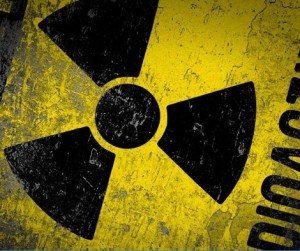Transcribed Video BBC NEWS Australian Cannonball Fukushima Disaster Report
More than 300.000 children from around Fukushima nuclear plant are having health checkups because of fears of possible thyroid disorders from radiation. The meltdown at Fukushima has added to public unease in Japan about nuclear energy, and some experts say their warnings about the risks were ignored. Our science correspondent David Shukman has been reporting on the nuclear question and has been given rare access to the Hamaoka nuclear power station.
David Shukman: This is the friendly face of nuclear power, bright and reliable, an exhibition to persuade the public that getting electricity this way is safe. But people have also seen a much darker image. Men struggling inside the Fukushima power station for the past six months and opinion is shifting even inside the plant itself.
None of the staff can speak to the media openly but engineer from Fukushima agreed to meet us. To hide his identity we have altered the video, but this is what he said.
Fukushima Engineer: That if people think nuclear power is safe, I’d like them to work with me for a day in the ruble. They’d see a disaster at Fukushima, and if after that they still say it’s safe, they are just ignorant.
David Shukman: Most of Japan’s nuclear power stations like this one at Hamaoka are now shut down. Here the 2000 staff are just keeping things ticking over. And none of the plants will reopen until they are better defended, especially from the sea.
David Shukman: The big shock for the Japanese nuclear industry was that the earthquake was stronger and the tsunami bigger than anyone expected, so they are having to take emergency measures, here they can no longer relay on this huge embankment for protection against the sea. They are going to build an 18 meter wall just the other side of it.
David Shukman: A company video explains how this massive new sea defense will work, and on a rare visit inside we were shown how the power station is already been made more waterproof. It was flooding that caused the catastrophe at Fukushima so here the backup systems are now installed up on the roof. Officials hope the public will be reassured.
Kanji Nishida, Chubu Electric Power: We confirm that tsunamis will not come over our embankment we still think our nuclear power plant is safe enough.
David Shukman: But at the governments earthquake research center they are worried, they have simulated in graphic detail a really huge tsunami that struck Japan more than a thousand years ago, and they say that no one listens.
Japan Earthquake Research Center: According to the director Yukinobu Nakamura we warned that a tsunami could overwhelm Fukushima, but they put of doing anything about it.
David Shukman: In the past Japan quietly relied on nuclear power but the question now is whether the next generation will still want it. David Shukman BBC NEWS at Hamaoka in Japan.








No comments:
Post a Comment